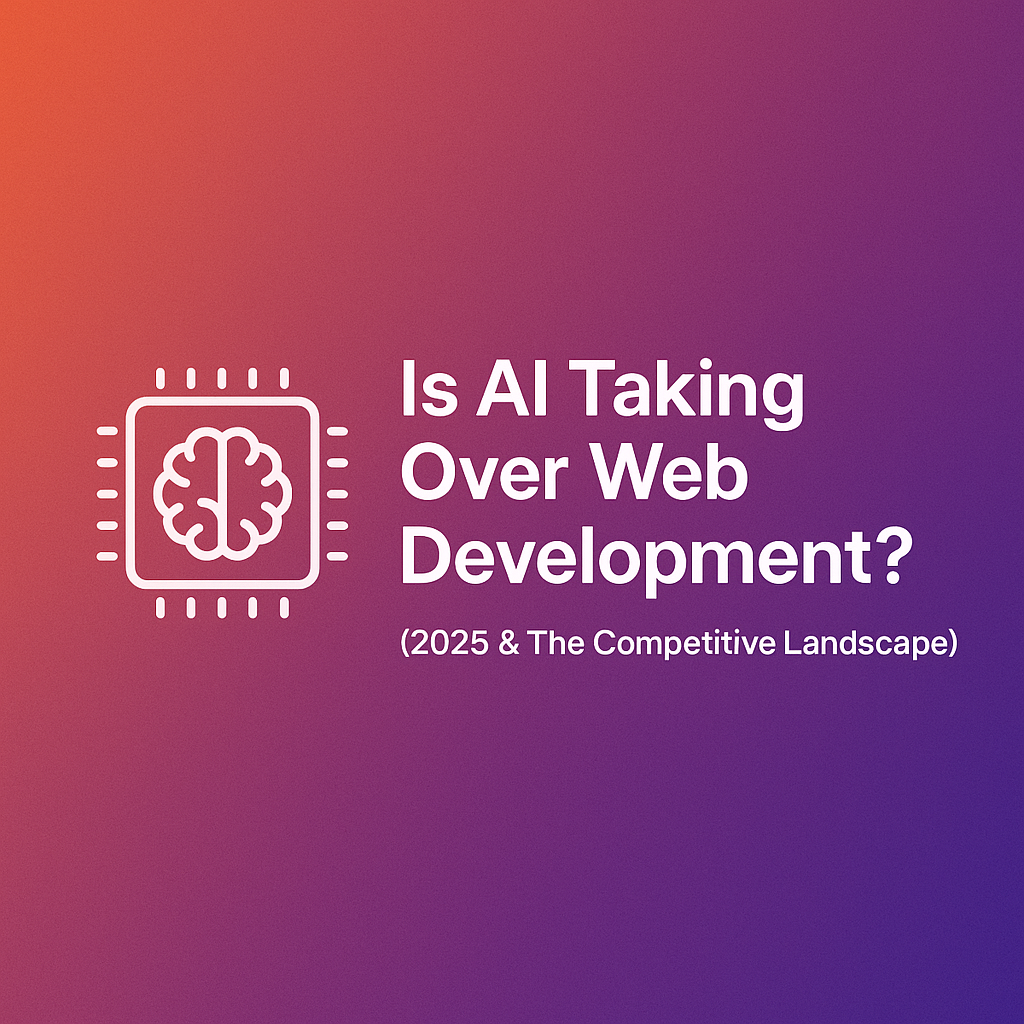Is AI Taking Over Web Development? (2025 & The Competitive Landscape)
THE RACE
In 2025, web development is no longer just about coding from scratch — it's about collaborating with machines. Artificial Intelligence (AI) has become deeply embedded in how websites are designed, built, tested, and optimized. However, the conversation is not just about technology; it’s about a race — a fierce competition between companies, platforms, and developers to lead the new digital era.
2025: A Year of Intelligent Development
AI-driven tools are standard. Smart IDEs predict code structures. No-code platforms let businesses design applications with voice commands. Testing suites powered by AI identify vulnerabilities before human developers even finish their work. Companies are launching websites in days, not months.
The Battle of Giants: Microsoft, Google, and New Challengers
Tech titans are at war. Microsoft continues to dominate with GitHub Copilot X and AI-enhanced Azure Web Services. Google fires back with Gemini DevKit and AI-assisted Firebase. Meanwhile, Amazon’s CodeCatalyst suite is automating full-stack workflows with minimum developer input.
But startups like Replit, Framer AI, and Builder.io are rapidly gaining ground. Their agility allows them to innovate faster, offering hyper-customized AI solutions for individual developers and small businesses. It's not just the giants who are racing — the battlefield is wide open.
New Competition: AI-First Web Studios
A new breed of companies has emerged: AI-first studios. They focus purely on delivering smart, adaptive websites that learn from user behavior in real time. These companies are redefining what "development" even means, blending data science, machine learning, and UX design into a single discipline.
Where Freelancers and Traditional Agencies Stand
For independent freelancers and traditional web agencies, 2025 is a challenging year. Those who resist AI integration are losing clients rapidly. On the other hand, freelancers who offer AI-driven SEO, predictive analytics, automated A/B testing, and real-time UX optimization are thriving.
Agencies are evolving into "AI consultancies," helping brands choose the right AI tools, train them, and integrate them into business processes. Success now depends on adaptability, not size.
The Limits of AI in 2025
Despite stunning progress, AI in web development still has blind spots. It struggles with:
- Understanding emotional branding and storytelling
- Making ethical decisions in UX design
- Handling unique, non-repetitive custom logic
- Predicting long-term user behavior changes
This leaves an important space for human creativity, leadership, and innovation. AI builds the structure, but humans still create the soul of digital experiences.
The Future: AI-Enhanced, Human-Centered
The future of web development is hybrid. AI accelerates production. Humans enhance vision. Companies are now hiring "AI Integration Architects," "Prompt Engineers," and "Digital Storytellers" alongside traditional developers and designers.
Smart businesses understand: It’s not about replacing developers; it’s about amplifying their abilities. The competition in 2025 isn't about who codes the fastest — it’s about who innovates the smartest.

Comments(0)
Please login to leave a comment